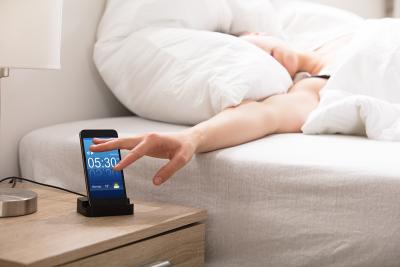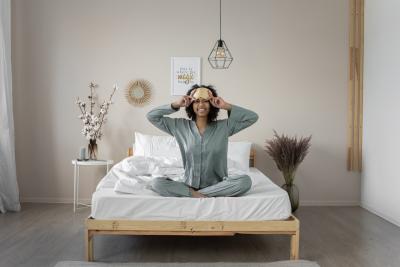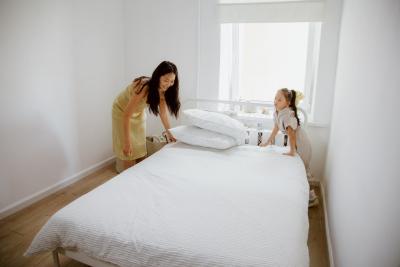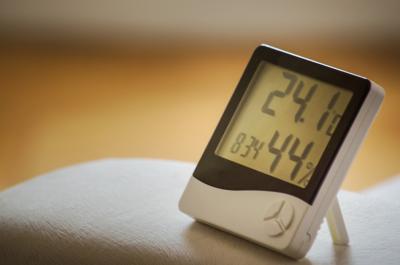We've all been there at some point - it's Sunday night, and you start feeling anxious about the coming Monday. Don't worry, though; you're not alone in these feelings! New research conducted by Channel 4 and the University of Exeter has revealed that more than two-thirds of Brits experience Sunday night anxiety, including those who love their job.
Naturally, being stressed on a Sunday night can make it hard to fall asleep, impacting your work the next day. To combat this, we've asked Dr Katherine Hall, a sleep psychologist at Somnus Therapy, who has shared her top tips for overcoming these Sunday scaries that so many people suffer from.

Seven tips for overcoming Sunday night anxiety
Whilst sleep is essential to a person’s day, it’s even more important on a Sunday night when preparing for your workweek. Sleep can help prepare you mentally, physically, and emotionally for Monday morning. It also gives you time to let go of any stress or worries from the previous week so you can start fresh on Monday morning.
Here are Dr Hall’s top tips for ensuring you get a good night’s sleep:
1. Have a set bedtime and stick to it
You may be enticed to stay up late on Sunday night as falling asleep makes Monday morning come even quicker; however, this will make your work week even harder to manage. It’s important to have a set bedtime and to stick to it every night, or at least Sunday - Thursday night when you’re more likely to be at work.
Whilst sleeping at a specific time may feel slightly childish, this routine helps your body regulate its natural clock and create a healthy sleeping pattern. This will likely result in you feeling tired at roughly the same time every evening and prevent periods where you crash out through exhaustion. If you're curious about how well you actually sleep each night, then why not try out a sleep diary to keep track of your sleep?
2. Avoid a Sunday afternoon nap
We know this is a hard one, as everyone loves curling up in bed and having a good nap just as much as the next person! But afternoon naps can disrupt a healthy sleeping pattern. Napping can make you feel less tired and, in turn, cause trouble sleeping, as you don't feel sleepy at your usual bedtime.
So, the next time you sit down to relax and feel drowsy, pick yourself up off the sofa and get active. Whether it’s going for an after-dinner walk or simply doing the dishes, the activity will get your body moving and prevent you from a nap that can ruin your good night's sleep.
3. Soak up some sun throughout the day
The morning sunshine is a great way of waking yourself up after a deep slumber, but did you know early morning sunshine can also help you sleep at night? Sunshine will regulate your internal clock alongside daylight hours, and it could also have some positive effects on your hormone cycles and body temperature.
If you’re worried you don’t get enough sunlight (hardly surprising with our British weather), you could also simulate sunshine with a light therapy box.
4. Stop the late-night scrolling and read for just six minutes
Resisting the urge to check your emails or the latest posts on Instagram or read the next chapter on your kindle can prevent the soft glow of blue light from disrupting your snooze. The light from TV screens can also suppress melatonin levels and stimulate your brain rather than relax you. Instead, consider reading. A study by The University of Sussex found that reading can reduce stress by up to 68%, working faster and better than other relaxation methods, such as listening to music (61%) or walking (6%).
However, what is most impressive is that the study revealed that participants only needed to read for six minutes before their stress levels were reduced. So, given that the average reading speed is 1 page per minute, the average person only needs to read six pages before their stress levels are reduced, making this an easy habit to form for anyone.
Plus, reading an absorbing book also makes you more likely to experience increased slow-wave activity (a type of brain wave associated with deep sleep) during the initial stages of your sleep cycle. This means you’ll have a deeper sleep overall and feel more restful.
5. Pick your outfit the night before
6:30 am isn’t the ideal time for a fashion show, so stop trying on everything in your wardrobe and organise what you’ll wear the night before. Not only will you save heaps of time that are usually wasted on indecision, but your bedroom floor won’t be covered in various tops and trouser combinations, and you won’t need to rush to iron something last minute.
If you’re wondering how to start a good work week, getting ready quickly and easily is a great start, as you’re less likely to be late for work, causing you to stay longer.
6. Rub the inner part of your wrist for 2-3 minutes
If you’re lying in bed and struggling to drift off, try rubbing the inner part of your wrist to help soothe yourself into a slumber more quickly. The pressure points on this part of your wrist are known as Heart 4, 5, 6 and 7, and are four acupressure points that help alleviate stress by reducing your cortisol levels (otherwise known as your stress hormones).
7. Place an icepack on your chest for 15 minutes
If you find yourself wide awake with anxiety and need help calming down, add a towel-wrapped icepack to your chest and hold it there for 15 minutes. This helps cool down the vagus nerve (the longest nerve in your body), responsible for your parasympathetic nervous system. Throughout the 15 minutes, you will slowly see yourself calming down and your heart rate lowering to a more still-like rate.
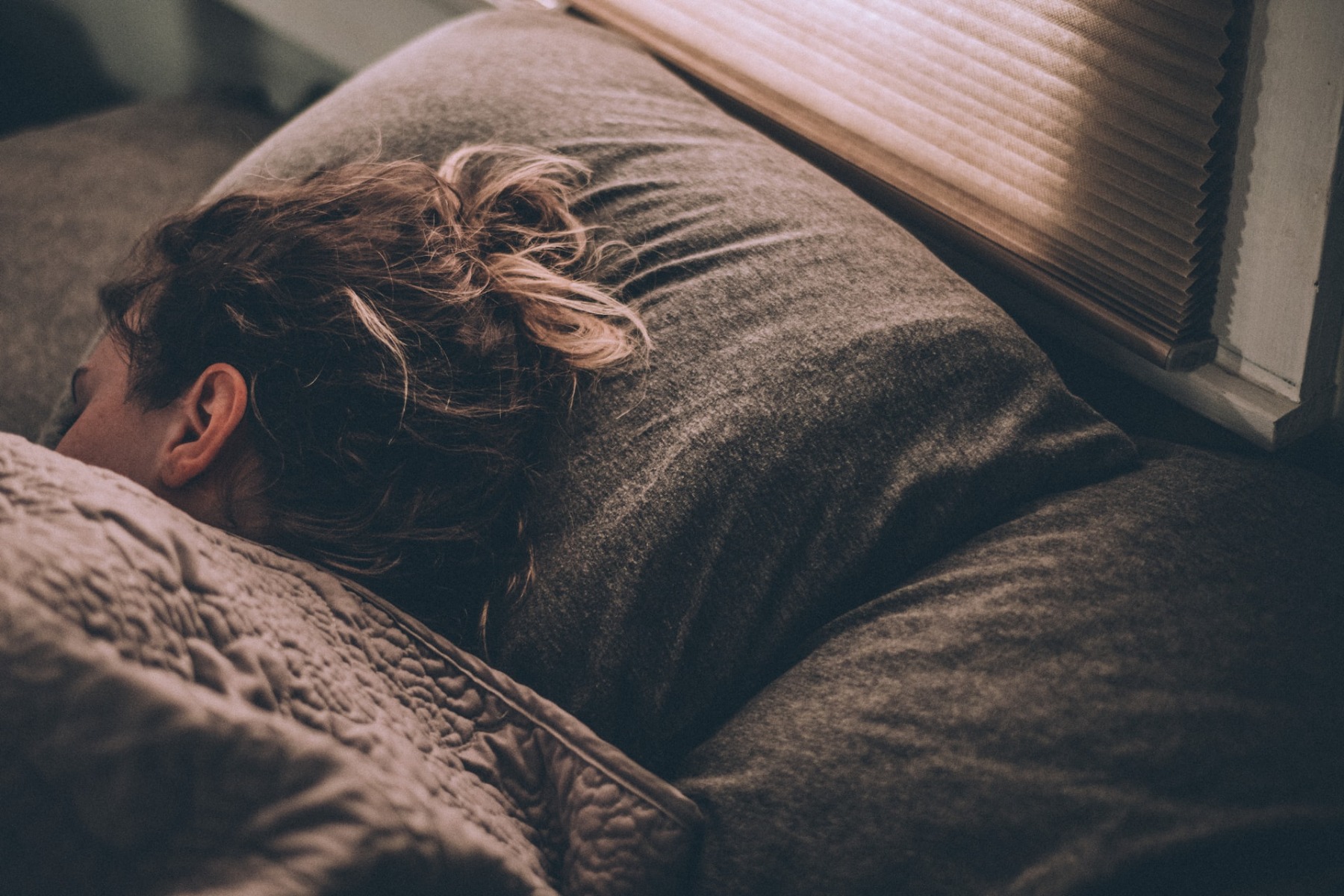
Sleep easy on Sunday nights
With our tips, you'll sleep easier than ever on Sunday nights, so you'll be ready to tackle all your work tasks on a Monday! Not only will you feel better when you've got a full night of sleep, but you'll be able to concentrate better when you're in the workplace. Alongside our handy tips, ensure you have the right mattress to support your body as you sleep throughout the night.
The right mattress will make our tips work even better, so you can get a restful night's sleep every time. Check out our mattress buying guide for more in-depth information about the different types of mattresses to find the best one for your needs.










